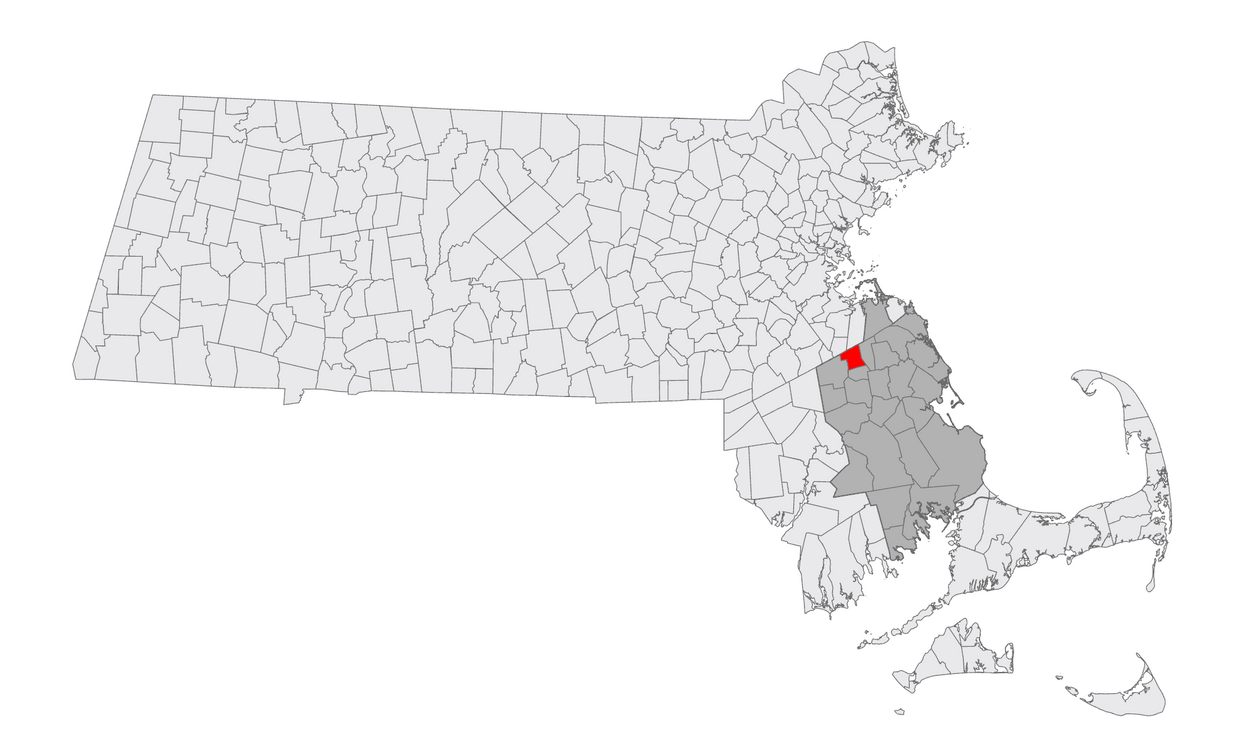Abington Summary
Abington is a town in Plymouth County, Massachusetts, in the Eastern part of the state. They have a population of 19,059 people and an area of 9.7 square miles. Climate hazards present in Sudbury include inland flooding, severe winter storms, other severe weather, drought, and extreme temperatures.
Abington's MVP 2.0 Core Team
The MVP 2.0 Core team is a group of municipal staff and Community Liaisons who work together to identify local climate resilience priorities and implement a project that supports those priorities.
Abington's Community Liaisons include:
- A part-time employee at senior center
- Two pastors
- A student representative
Abington's Core Team includes municipal representation from:
- Council on Aging
- Public Health Nurse
- DPW and Director of Park and Recreation
- Children’s librarian and School Committee member
- Police Officer
Abington Community Resilience Priorities
Community resilience priorities are practical actions created during the MVP 2.0 Planning Grant process. They were shaped through community input, thoughtful discussion about changing local needs, and feedback from Environmental Justice groups and other community members.
Abington, in partnership with their Core Team, identified the following priorities through the MVP 2.0 process.
| Priorities | Potential Actions | ||
|---|---|---|---|
| Priority 1: Food access | Potential Actions: Improve access to healthy and affordable food through expanding food access points (e.g. community gardens), culturally-informed offerings, and reducing language or transportation barriers. | ||
| Priority 2: Safe and resilient housing | Potential Actions: Support resilient and safe housing by identifying opportunities to improve backup power, heating, and cooling options. | ||
| Priority 3: Water quality | Potential Actions: Improve water quality and address concerns over PFAS and water contamination through additional or expanded water treatment facilities to improve health and safety. | ||
| Priority 4: Parks enhancements | Potential Actions: Develop strategy for new walkable corridors and parks enhancements, and events and partnerships for beautification (i.e. trash pickup). | ||
| Priority 5: Family support | Potential Actions: Support working families by providing childcare/aftercare, internet access, and language education services for economic growth. | ||
| Priority 6: Community resource access | Potential Actions: Expand populations using resources by creating informational tools in variety of languages and more ways for information to be received, e-blasts and physical flyers about necessities (such as trash pickup, food pantry information, other community resources). | ||
| Priority 7: Stormwater management | Potential Actions: Dedicated funding for community stormwater management and flood resilience needs. | ||
| Priority 8: Resilient heating/cooling | Potential Actions: Identify opportunities to provide resilient/backup power to most vulnerable community members and essential facilities, cooling for senior housing and schools like Beaver Brook and Woodsdale, including through an evaluation of the electrical systems and possible updates needed to support more heating/cooling. | ||
| Priority 9: Forest management | Potential Actions: Tree canopy management and prevention of erosion and tree loss. | ||
| Priority 10: Transportation assistance | Potential Actions: Increase access to more paratransit/fixed route transportation modes (e.g., Abington fixed-route BAT public bus service), beyond access to shopping centers, and ridesharing with cost support. | ||
Abington's MVP 2.0 Seed Project: Growing Greener
Abington received funding to implement a Seed Project that addresses one or more of their climate resilience priorities.
Abington plans on identifying locations and implementing new community gardens to improve community access to healthy and affordable food. This project will also consist of expanding awareness of the existing community garden and providing education opportunities on sustainable farming.
The activities of this project include:
- Identify locations for future community gardens.
- Evaluate and prioritize locations and install new community gardens.
- Identify tools and storage space for gardening including seed bank, soil, raised beds, and storage shed.
- Expand gardening education offerings, including culturally informed options.
Abington's Action Grant Projects
The MVP Action Grant provides funding to communities that want to take important steps to prepare for climate change, such as dealing with extreme weather, flooding, rising sea levels, and extreme heat.
Building a Climate Resilient Food System in Plymouth County FY25 (Brockton, Plymouth, Abington, Easton and Duxbury)
Old Colony Planning Council and Plymouth County are partnering with others in the region to help achieve a climate-resilient food system. The project aims to strengthen the collaborative capacity of food system participants at the local and regional scales to co-design innovative solutions to adapt to a changing climate, which would also have the co-benefits of strengthening local food economies and reducing food insecurity. A primary output of the project will be a data-driven, participatory Climate-resilient Regional Food Action Plan. The project also includes a series of events to engage food system participants as well as the public.










